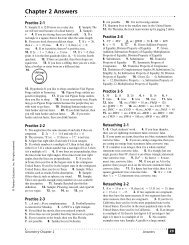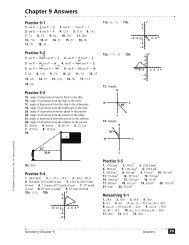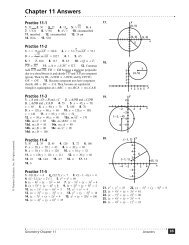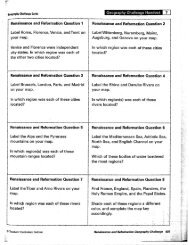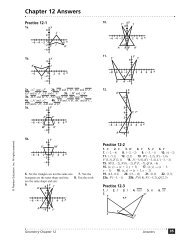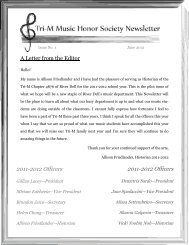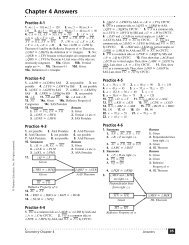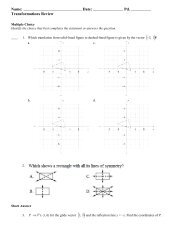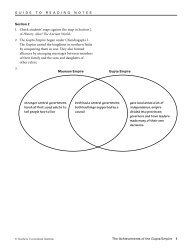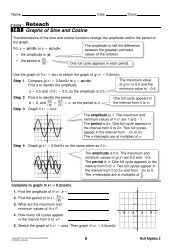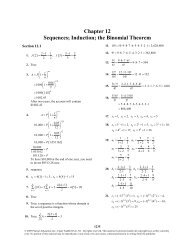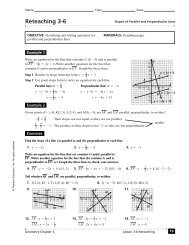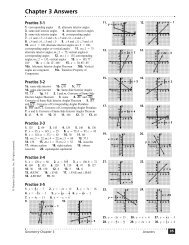High School Handbook - River Dell Regional School District
High School Handbook - River Dell Regional School District
High School Handbook - River Dell Regional School District
Create successful ePaper yourself
Turn your PDF publications into a flip-book with our unique Google optimized e-Paper software.
Grieg, Edvard. Concerto in A-minor, op. 16. Compact disc. Cond. Eugene Ormandy. Philadelphia Orch. RCA,<br />
Seal LSC 3065, 1989.<br />
Red<br />
Work of Art<br />
Kahlo, Frida. Self-Portrait with Cropped Hair. Museum of Modern Art, New York.<br />
Lecture or Speech<br />
List the speaker, the title in quotation marks, the name of the sponsoring institution or group, the place, and the date. If the<br />
speech is untitled, use a descriptive label (“Lecture,” “Keynote Address,” etc.).<br />
Stern, Virginia. “Sir Stephen Powle as Adventurer in the Virginia Company of London.” Seminar on the Renaissance.<br />
Columbia University. New York. 15 Oct. 1985.<br />
Performance<br />
List the title, other appropriate details (such as composer, writer, director), the place, and the date. If you cite a particular<br />
person, start the entry with that person’s name.<br />
Frankie and Johnny in the Clair de Lune. By Terrence McNally. Dir. Paul Benedict. Westside Arts Theater, New York. 18<br />
Jan. 1988.<br />
Cartoon<br />
Trudeau, Gary. “Doonesbury.” Cartoon. Philadelphia Inquirer. 9 Mar. 1988: 37.<br />
Other situations exist, not covered here. Also, your teacher may require use of another form, such as that of The<br />
American Psychological Association (APA). Come to the library for more information.<br />
Exploring Library Resources<br />
(Most of this section was taken from Andrea Lunsford’s The St. Martin’s <strong>Handbook</strong>, 2nd edition.)<br />
The library is one of a researcher’s best friends, for answering a research question and exploring and testing a<br />
hypothesis most often begin there. Libraries provide two necessary kinds of information: general background, which will<br />
give you an overview of your topic and place your research question in context, and particular support, which helps answer<br />
your research question and develop your hypothesis.<br />
Types of Library Resources<br />
General Encyclopedias<br />
For general background on a subject, encyclopedias are a good place to begin, particularly because many include<br />
bibliographies that could lead you to valuable sources. Though some encyclopedias do provide in-depth information, more<br />
often they serve as a place to start, not as a major source of information. Examples include:<br />
Encyclopedia Britannica<br />
Encyclopedia Americana<br />
World Book Encyclopedia<br />
Specialized Encyclopedias<br />
Compared with general encyclopedias, specialized encyclopedias usually provide more detailed articles by authorities in<br />
the field as well as extensive bibliographies for locating sources. For example:<br />
Annals of America<br />
Current Biography<br />
Dictionary of American Biography<br />
Encyclopedia of Bioethics<br />
Encyclopedia of Crime and Justice<br />
Encyclopedia of World Art<br />
McGraw-Hill Encyclopedia of Science and Technology<br />
Oxford Companion to English Literature<br />
45



